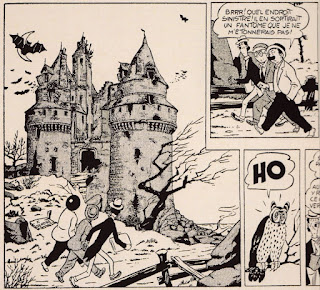An early, forgotten poem of Ann Radcliffe (?)

Back in 2011, I started to identify all quotation insets and chapter epigraphs of Ann Radcliffe novel, in order to find about which authors she had read, and liked, as we know so little about her. While trying to trace down a quotation inset, still unidentified, from 1987 [1794] The Mysteries of Udolpho , London, The Folio Society volume 4, chapter 12, page 633 While the fancy thus wanders over landscapes partly of its own creation, a sweet complacency steals upon the mind, and "Refines it all to subtlest feeling, Bids the tear of rapture roll" I chanced upon the following poem, in The London Magazine, Or, Gentleman's Monthly Intelligencer, Volume LII for the year 1783 - January to June - p296-297 (June) Written on the sea-shore by moon-light When still at eve the moon ascending, Thro’ the Heav’ns pathless wide, From a cloud of silver bending, Pours her radiance o’er the tide, While with slow a...
